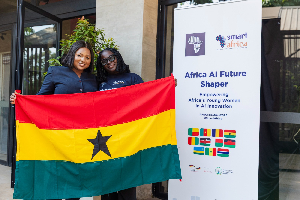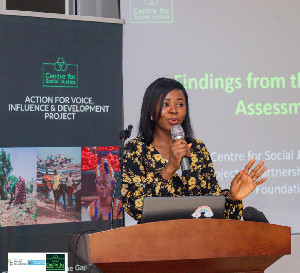President of the Ghana Technology University College (GTUC) Dr. Osei Darkwa has called for a relook at the curricular of academic institutions, to address weak linkages between academia and industry so as to deliver relevant programmes and make graduates employable.
Speaking at the 11th congregation of the school, which saw over 240 students graduate with various masters degrees, Dr. Darkwa noted that a change of mindset in academia is needed to create an atmosphere where both faculty and students actively seek to prepare graduates for the job.
“At the moment a few universities and colleges in Ghana have made attempts to develop employable skills and the spirit of entrepreneurship in students, which is commendable.
“As part of efforts to improve employable graduates, we should also promote university-industry linkages without abandoning the core business of universities -- to educate, research, and disseminate knowledge,” he added.
Speaking on the theme ‘Producing Employable Graduates for the Ghanaian Industry’, Dr. Darkwa said the global unemployment trends and projections indicate the global unemployment rate will rise to 6 percent by 2018.
According to him, the expected rise interestingly captures people who are educated and supposed to be engaged in formal jobs. The menace, he said, is even more increasingly alarming in the sub-region and Africa.
The latest figures on graduate unemployment released by the Institute of Statistical Social and Economic Research (ISSER) of the University of Ghana states that graduate unemployment will hit 271,000. According to ISSER, Ghana is sitting on a time-bomb with its worsening unemployment situation.
Professor Kwesi Yankah, the special guest of honour at the occasion, noted that a recent research initiative by five scholars in Legon that sought to address the issue of academia and industry came up with significant findings.
The study, according to Professor Yankah, discovered a complete mismatch between job-skills requirements by firms and skills offered by tertiary graduates. “They noticed the absence of certain key skills among graduates, including the lack of skills to analyse data/situations and propose solutions; the relative absence of leadership and innovative skills; and the dearth of technical skills.”
Other lapses uncovered by the research -- which observed tertiary institutions and firms within Greater Accra, the Association of Ghana Industries, government agencies, National Accreditation Board and others -- included perceived limitations in oral and written communication skills, the capacity for team work, numeracy, as well as IT skills.
“The mismatch between academia and industry is such that several industries have been compelled to retrain graduates they have employed, in their training schools, to orient them toward specific industrial expectations.”
The effect of the perceived mismatch, according to Professor Yankah, has often led to low industrial growth and swelling budgets of industries with capacity building or the further training of graduates.
“This added training naturally leads to higher costs of production in industry, which are eventually passed on to the consumer,” he added.
Business News of Thursday, 20 August 2015
Source: B&FT













